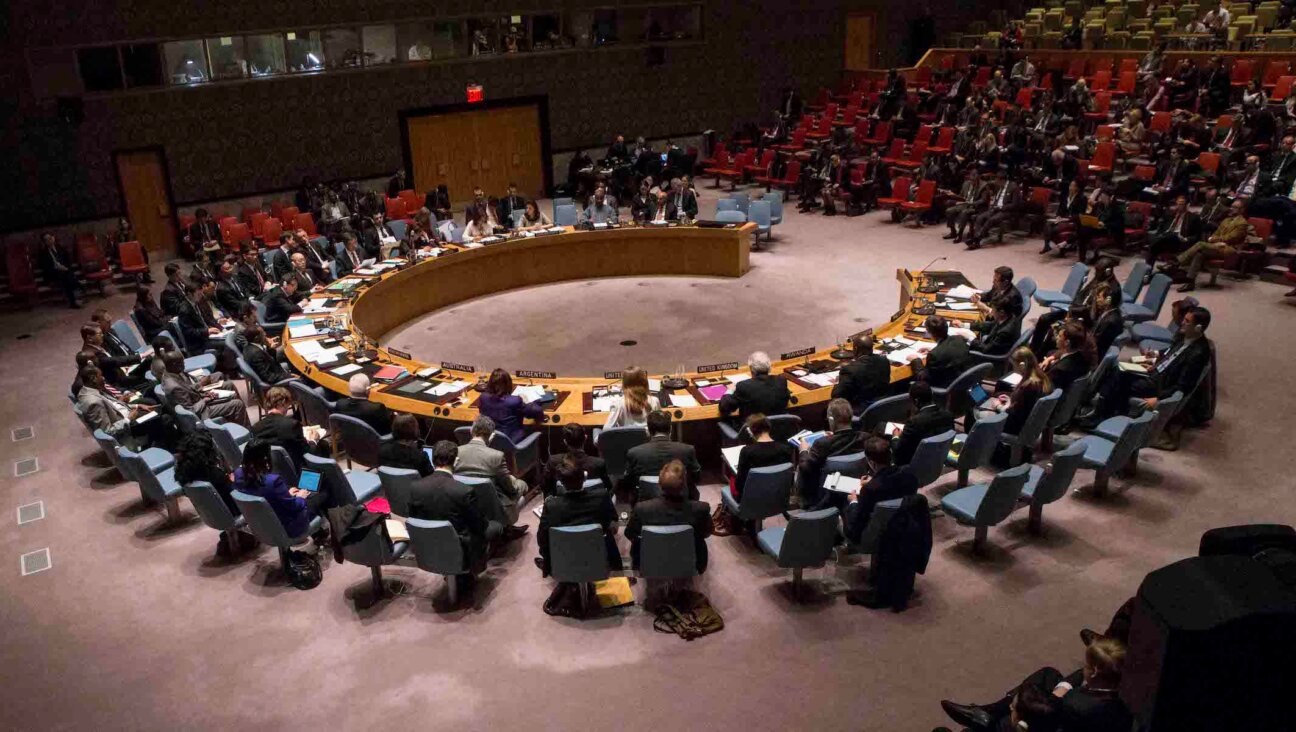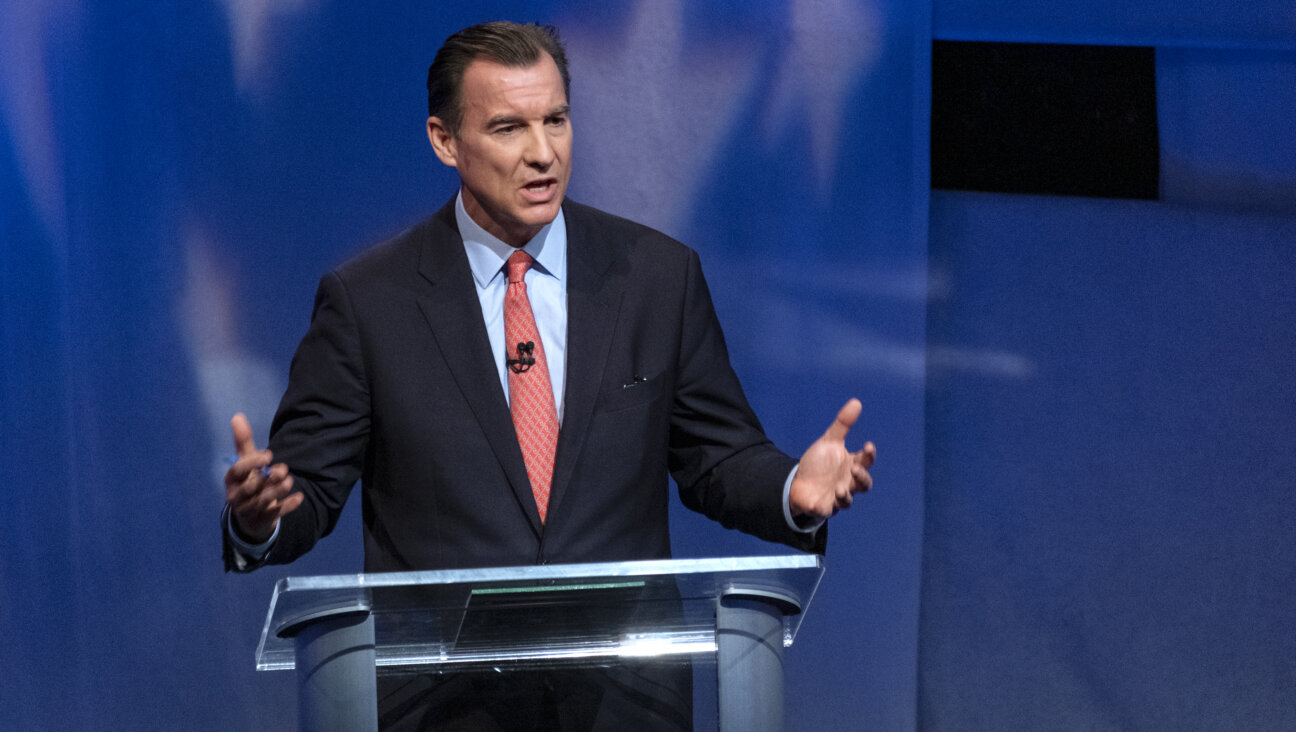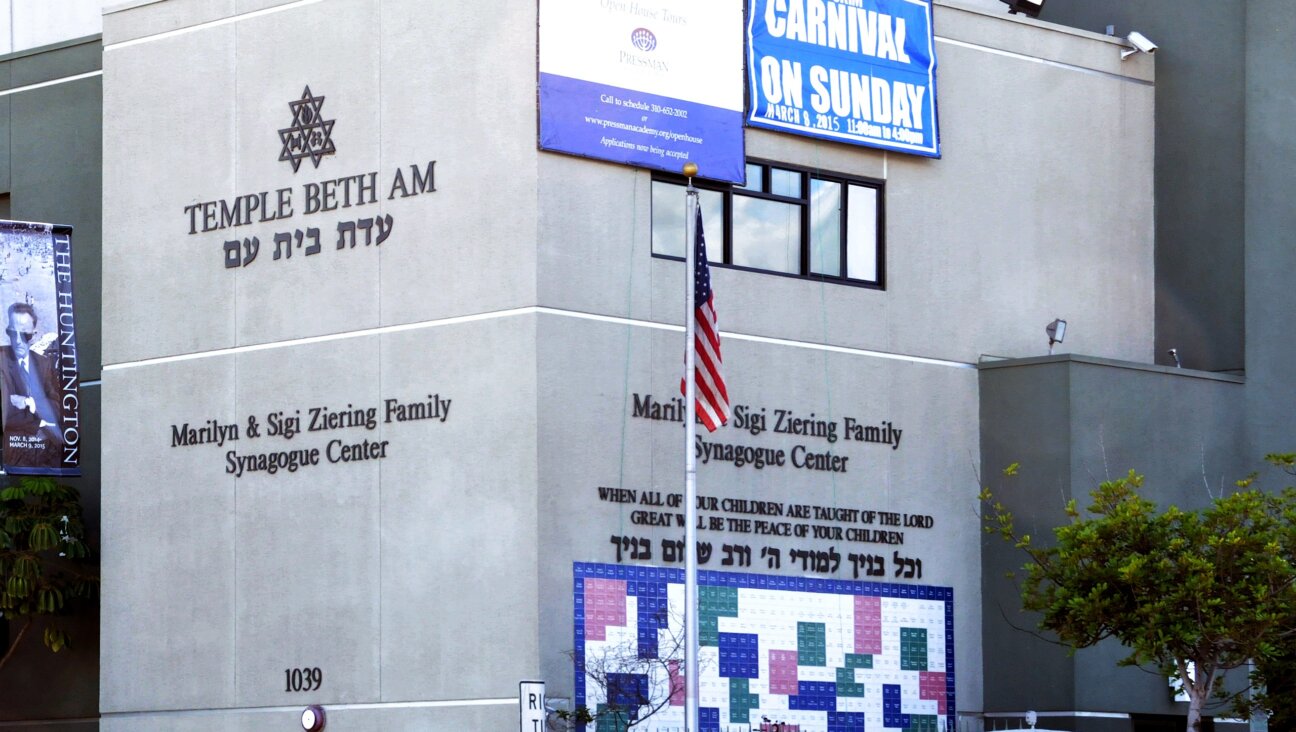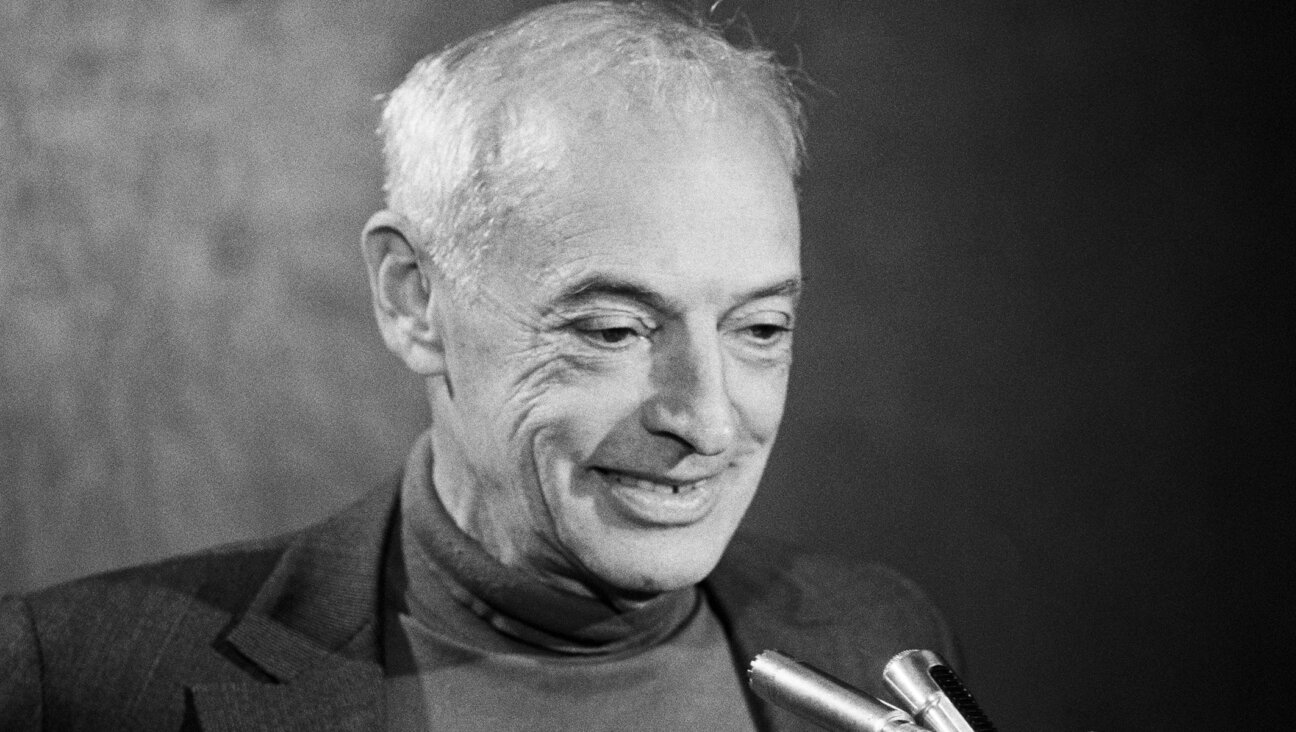Why is Starbucks being targeted by activists for both Israel and Gaza?
Graffiti, boycotts and social media campaigns are making headlines. But Starbucks’ trouble is rooted in a union dispute, not the Middle East
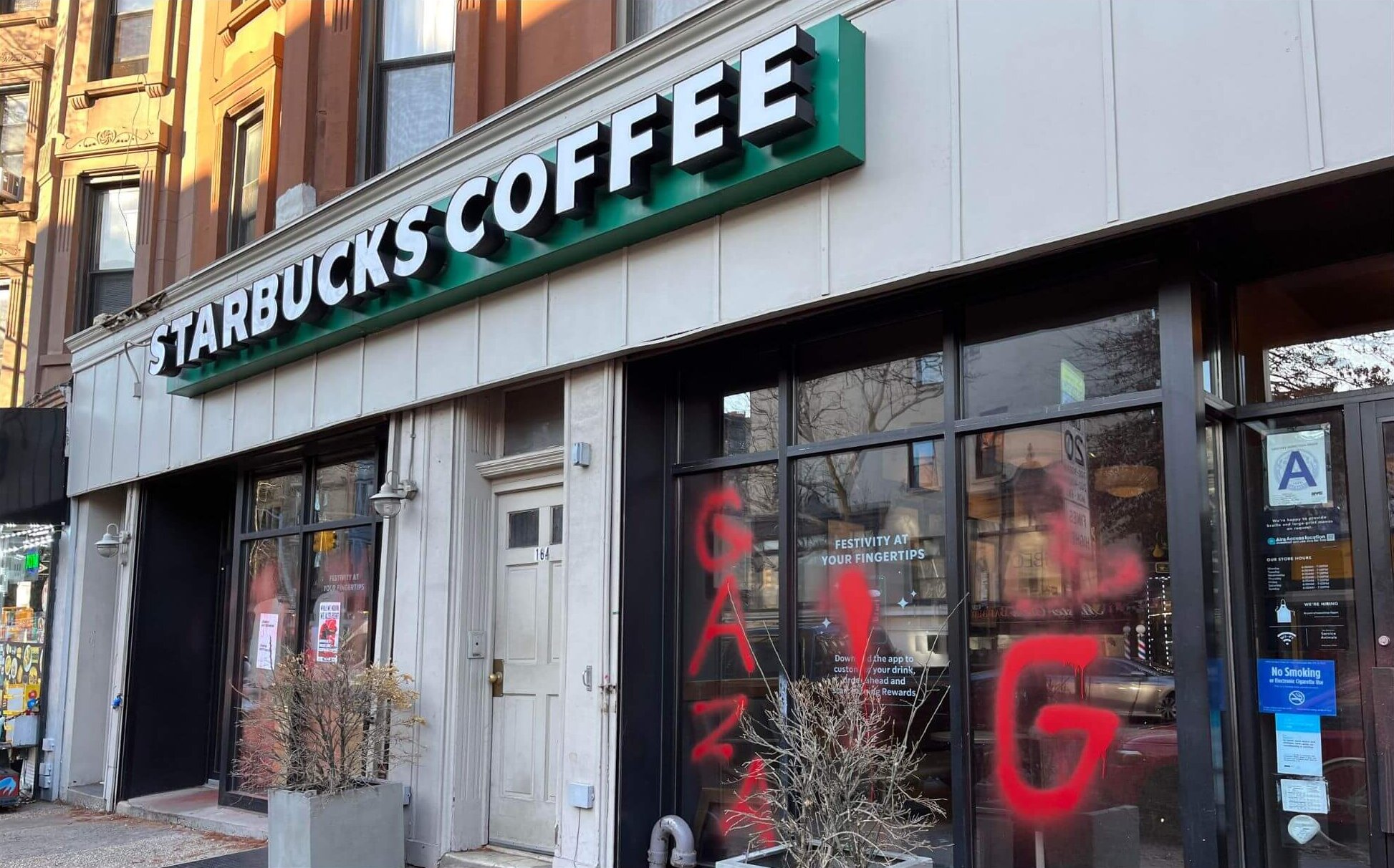
A Starbucks in Brooklyn was vandalized with pro-Palestinian graffiti. Photo by Sarah Oren Brasky
Starbucks has no stores in Israel and it’s not on the list of companies targeted by the pro-Palestinian Boycott, Divestment and Sanctions movement.
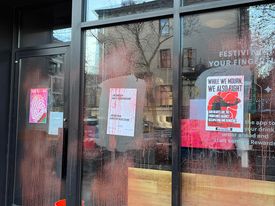
But a dispute between the company and the union representing its workers has led pro-Palestinian activists to hit Starbucks stores. Protesters chanting “Starbucks supports genocide” have made headlines and vandalism has disrupted business in many locations.
The latest target, a Starbucks in Park Slope, Brooklyn, was closed Wednesday after someone wrote “GAZA” in blood-red spray paint on the door overnight and plastered windows with “While we mourn, we also fight” posters.
At the same time, the world’s largest coffee chain has also been hit with boycotts and harassment from supporters of Israel.
The labor dispute
The boycotts and protests from both sides — including thousands of #boycottstarbucks posts on TikTok — stem from an ongoing dispute between Starbucks and the union organizing its workers.
Both the union and the company declined to comment for this story, but the history of the labor dispute and the activism against the company from both sides of the Middle East conflict have been widely reported. The company has several times decried all “acts of hate, terrorism and violence.”
Starbucks Workers United has unionized 370 Starbucks stores, but has been unable to reach agreement on contracts. Workers have walked out; the union is asking consumers not to buy Starbucks gift cards, and federal judges have found that Starbucks committed more than 330 violations of federal labor law including firings, threats, store closures and refusal to bargain.
The post that triggered the protests
On Oct. 9, shortly after Hamas’ Oct. 7 attacks in Israel, someone put a “Solidarity with Palestine!” post on the union’s account on the social media platform X. The post was not authorized by union leaders and was deleted within 40 minutes, but it remained visible in reposts elsewhere on social media.
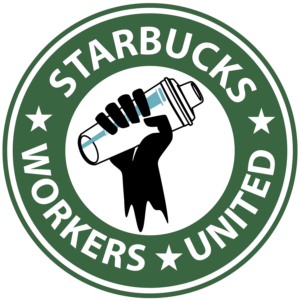
On Oct. 18, Starbucks sued the union in federal court, claiming trademark infringement because the union uses its name and logo. (The union logo is a green circle, similar to Starbucks’ symbol, but the union’s logo features a fisted hand holding a coffee cup instead of Starbucks’ crowned face with flowing hair, which is meant to represent a two-tailed sea siren.)
Starbucks could have sued the union for that brand resemblance at any point since the union began organizing in 2021, but chose to act in response to the pro-Palestinian message. “We disagree with the views expressed by Workers United,” the company said, adding that consumers and others were “mistakenly” tying those views to the company because of the similarity in the union’s name and logo.
In a countersuit, the union pointed out that unions are often named for the company whose workers they represent. “Starbucks is seeking to exploit the ongoing tragedy in the Middle East to bolster the company’s anti-union campaign,” wrote union president Lynne Fox.
Israel supporters enraged
Meanwhile, the pro-Palestinian tweet from the union account enraged Israel supporters. U.S. Sen. Rick Scott, a Florida Republican, called for a boycott of Starbucks, as did Florida state Rep. Randy Fine, who tweeted, “If you go to Starbucks, you are supporting killing Jews.”
If you go to Starbucks, you are supporting killing Jews. https://t.co/tOAe5pUBTF
— Rep. Randy Fine (@VoteRandyFine) October 11, 2023
And the Orthodox Jewish Chamber of Commerce issued a statement headlined: “Drinking a Cup of Starbucks is Drinking a Cup of Jewish Blood.”
The chamber claimed that Starbucks founder Howard Schultz had even supplied the chamber with a list of unionized stores to boycott. That led the union to file a National Labor Relations Board complaint accusing the company of organizing a boycott of its own stores. The company, for its part, said the list of stores did not originate with them, and the Orthodox chamber ultimately called off the boycott.
Starbucks said the pro-Israel campaign resulted in “angry” customers confronting workers in stores and sending “violent messages” through its customer contact center. A Rhode Island store was vandalized with both Stars of David and a swastika.
Schultz, who is Jewish, did not respond to a query from the Forward sent via his family foundation. He is the former CEO, chairman emeritus and still a major shareholder in the company.
In 1998, he was honored by the Jerusalem Fund of Aish HaTorah for promoting U.S.-Israel relations, and in 2001, Starbucks opened a handful of stores in Israel. But the stores were closed two years later, with the company citing “operational challenges.” Some observers said local coffee culture resisted the corporate incursion; others said the company did not want to risk alienating successful operations in Muslim countries.
Daughter of a Holocaust survivor
Meanwhile, Fox, the union president and a daughter of a Holocaust survivor, has invoked the memory of her father in her fight against Starbucks. She said her father spent seven years between the ages of 11 and 17 in concentration camps and ended up in the U.S. working as a tailor as a member of the Amalgamated Clothing Workers of America.
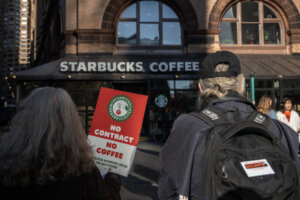
“Imagine my shock and deep hurt,” Fox wrote in an op-ed, when “the world’s largest coffee company launched a series of attacks on me and more than 9,000 Starbucks workers who have voted to join together in a union, alleging we support terrorism, hate and violence.”
Starbucks reported record sales in the quarter ending Oct. 1, but reports post-Oct. 7 have trended the other way. Bloomberg said Starbucks’ market value dropped by nearly $11 billion in the run-up to the holiday season, and its stock price dropped to around $95 per share this week, down 25% from a five-year high of $126 in 2021.
On Tuesday, Starbucks CEO Laxman Narasimhan issued an end-of-year letter with a message that may not satisfy anyone. Saying the company condemns “unleashed violence against the innocent, hate and weaponized speech, and lies,” he noted that “escalating protests” had led to vandalism at many stores. Protesters, he said, had been “influenced by misrepresentation on social media of what we stand for.”
“Our stance is clear,” he concluded. “We stand for humanity.”
A message from our Publisher & CEO Rachel Fishman Feddersen

I hope you appreciated this article. Before you go, I’d like to ask you to please support the Forward’s award-winning, nonprofit journalism so that we can be prepared for whatever news 2025 brings.
At a time when other newsrooms are closing or cutting back, the Forward has removed its paywall and invested additional resources to report on the ground from Israel and around the U.S. on the impact of the war, rising antisemitism and polarized discourse.
Readers like you make it all possible. Support our work by becoming a Forward Member and connect with our journalism and your community.
— Rachel Fishman Feddersen, Publisher and CEO







